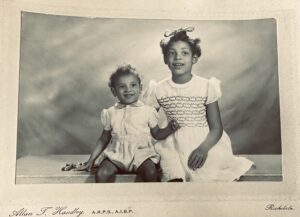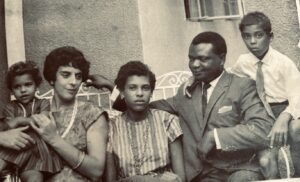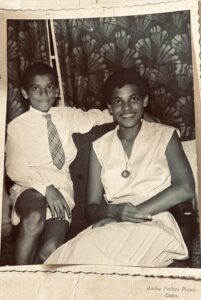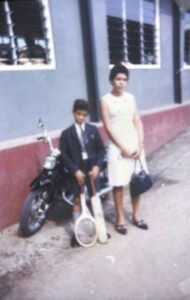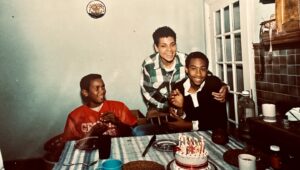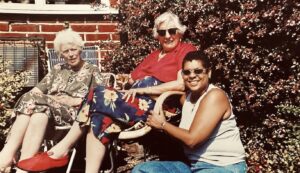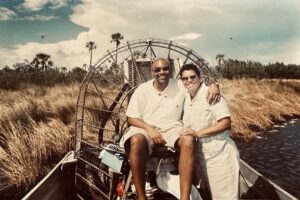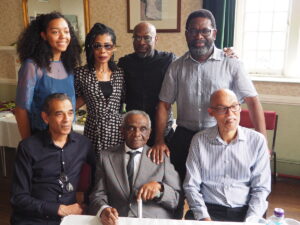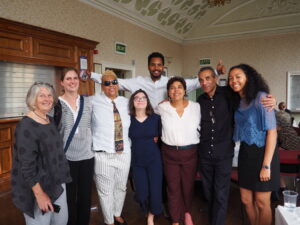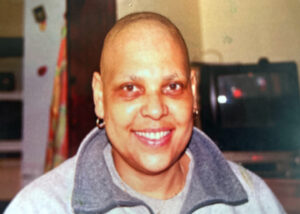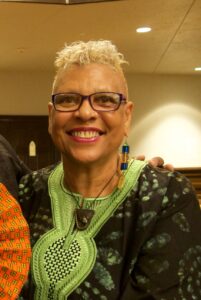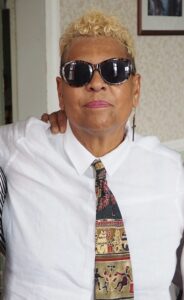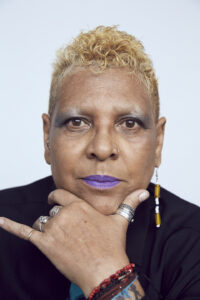Sokari was born on May 15th 1949 in London, UK. After four years of living with their grandmother, they moved to Lagos, Nigeria to live with their parents. Aged fourteen, they moved back to London to attend Catholic boarding schools, where they experienced racism from the teachers. Sokari was then expelled for standing up against the physical punishment used as discipline.
Aged nineteen, Sokari returned to Nigeria and defied their father’s wishes by getting married. Sokari then had three children between the age of 24 and 30. In 1983, they returned to London with their three children and were introduced to the Camden Black Sisters organization, which would prove a huge inspiration for their later activism. Here, they helped with the formation of the Winnie Mandela School, which sought to introduce children to their African and Caribbean heritages.
In 1998, Sokari was accepted on a PhD course at the University of Leeds. However, after recurring respiratory illnesses, they were forced to drop out. After a routine mammogram, Sokari then discovered they had breast cancer and underwent nine months of chemotherapy.
In 2002, Sokari embraced a new chapter, relocating to the Spanish countryside and delving into farming. Two years later, their passion for advocacy found a digital platform as they began writing the influential blog “Black Looks”, addressing a spectrum of issues from Queer Africa, LGBTQ+ rights, and human rights to African geopolitics. In particular, they used their platform to highlight legislations and their impact on queer communities.
Sokari’s work caught the attention of Pambazuka News and Global Voices, who hired Sokari to write in representation of marginalized voices. Sokari wrote a weekly column for the Pambazuka News and served as their online editor. Whilst working for Pambazuka, they also set up the Queer African Reader, a ground-breaking initiative highlighting African LGBTQ+ experiences.
Sokari’s engagement wasn’t limited to writing. In 2010 they moved to the United States and after a trip to Haiti, their photography became a vital medium for storytelling. Sokari then spent considerable time in Haiti over six years as a community organizer, educator, writer, and documentary photographer.
In 2013 Sokari received an International Reporting Project fellowship from John Hopkin to report on grassroots healthcare provision. In 2019, Sokari was awarded a Monroe Fellowship from the Center for the Gulf South in New Orleans. They also received a grant from the Astraea Lesbian Foundation for Justice.
Sokari is a Director for the Editorial Advisory Board of Feminist Africa, and is a member of the Black LGBTQIA+ Migrant Project (BLMP). Their photography has been exhibited in Berlin, Miami, New Orleans, New York, and Miami.
Currently living and working in the US and Haiti. Sokari Ekine remains a beacon of hope and change, using their words, images, and actions to challenge norms, fight injustice, and inspire generations to come.

